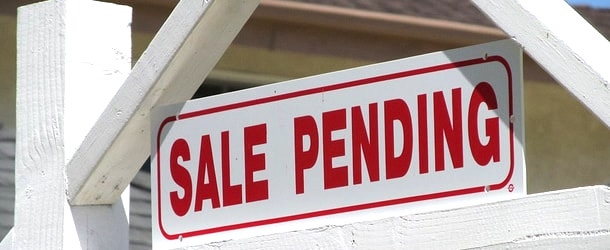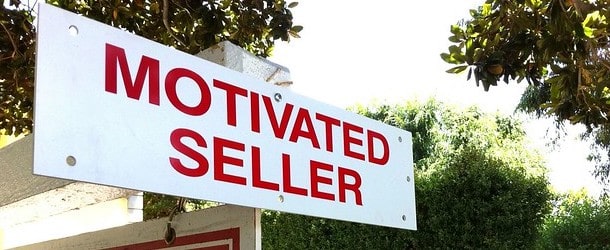
It’s been a while since I last posted a mortgage match-up, so without further ado, here’s the latest installment: “Prepay the mortgage or invest instead?”
There are likely thousands of articles that deal with this very subject, all with plenty of differing opinions, but we are in unprecedented times.
Mortgage rates have never been lower than they’ve been over the past year, and that changes the argument quite a bit, especially since stocks continue to generate massive returns in the face of a global pandemic.
Simply put, it makes holding a low-rate mortgage for a long time more attractive than it has ever been, assuming you can earn a better return elsewhere.
The good news is with mortgage rates in the 1-2% range, it shouldn’t take much to earn a better return.
Can You Earn a Better Return Than Your Mortgage Rate?
- Your mortgage interest rate is essentially your rate of return
- It may be possible to beat it by investing elsewhere like the stock market
- Prepaying the mortgage might not always be the best move if you can put your money someplace that earns a higher yield
- This could sway your decision to pay the mortgage early or dictate a refinance decision
As I noted in a prior post, the 30-year fixed averaged 5.72% over the past decade, and 6.52% over the past 20 years. The average jumps to 7.45% over the past 30 years.
Today, the average interest rate on a 30-year fixed mortgage is around 2.75%, and some borrowers may have snagged even lower rates.
For those who opted to take out a 15-year fixed, interest rates are in the low 2% range.
[30-year vs. 15-year mortgage]
Clearly, this is a material enough detail to make borrowers think twice about what to do with their extra money.
Do you pay your mortgage off early, on schedule, or go with something even more extreme like an interest-only home loan? Plenty of options here.
In the past, it may have been ambitious to think you could earn a better return than your 5-7% mortgage rate, but now that rates are in the 2% range, it sounds a lot more practical, even for the amateur investor.
If you factor in the mortgage interest deduction (assuming you itemize), your effective mortgage rate is even lower.
Of course, there are taxes on investment gains as well, so it’s somewhat awash. Granted, you can invest tax-free depending on the investment vehicle, and grow your investments now as opposed to later.
Mortgage Prepayment vs. Investment
| $250,000 Loan Amount | Prepay the Mortgage | Invest $500/Month Instead |
| Rate of Return | 3% | 6% |
| Monthly Payment | $1,554 | $1,054 |
| When Mortgage Paid Off | ~17 Years | 30 Years |
| Total Mortgage Interest Paid | $70,199 | $129,444 |
| Investment Account Balance | $0 | $179,382 |
| Remaining Mortgage Balance | $0 | $134,585 |
| Difference | +$44,797 |
To get a better idea of what I’m talking about here, it’s basically mortgage prepayment vs. investment.
In other words, what to do with any extra money beyond your minimum monthly mortgage payment.
Not everyone has extra funds, but if you do, it’s certainly something to think about.
Lots of homeowners want to be debt-free, typically for psychological reasons, but this may not actually make the most sense financially.
Let’s consider a hypothetical $250,000 loan amount tied to a 30-year fixed mortgage set at 3%.
The monthly payment is roughly $1,054. Imagine you’ve got another $500 in monthly income that can be used to prepay the mortgage or invest.
If you were to prepay the mortgage by making payments of $1,554 per month, you’d have it paid off in just over 17 years and save about $59,000 in interest.
Sounds like a no-brainer, until you consider that stashing $500 per month into an alternate investment yielding 6% annually would result in a balance of more than $179,000 after 17 years.
Even though you’d pay more mortgage interest over that time, the investment balance would be nearly $45,000 more than your remaining home loan balance of $134,585, tipping us in favor of investment vs. prepayment.
Just one example, and one must consider taxes and actual investment returns, but it illustrates why simply choosing to tackle the mortgage above all else may not always be the best move financially.
Savings Rates Are Terrible
- Savings account yields are very low at the moment
- So paying extra on the mortgage might be the better choice
- Since a typical savings account yields just 1% or even lower
- This is probably much lower than your current mortgage rate
Assuming you think you can beat your mortgage rate, the first place one might look is a savings account.
After all, they’re a pretty safe place to put your money with little risk aside from your bank going under and not having FDIC insurance somehow.
Unfortunately, savings accounts are yielding next to nothing these days. In fact, most yield less than 1% at the moment.
So if you chose to simply invest in one of these accounts, rather than pay down your mortgage, you’d be losing out by carrying mortgage debt, even at a super low rate of 2.75%.
However, the interest rate on your 30-year fixed mortgage will never change, whereas savings account yields will probably rise over time.
But until they do, stashing away money that pays you a 1% return while holding more expensive debt isn’t necessarily the wisest decision.
Factor in inflation, and it’s even more a losing proposition, assuming your money can’t even keep up.
Of course, most homeowners need to set aside some amount of cash in an emergency fund or whatever you want to call it just in case something goes wrong.
So putting it someplace where it will grow, albeit slowly, without major downside risk, can be prudent.
What About Mutual Funds and Stocks?
- You can always try your luck in the stock market
- There are plenty of dividend stocks with yields higher than mortgage rates
- Another plus is the stock market is very liquid unlike a mortgage/home
- So you can cash out quickly and easily if you need the funds
For the more confident investor, a better place to put your money could be in mutual funds, stocks, or a market-index ETF.
Or perhaps a dividend-paying stock that yields more than your existing mortgage rate.
Just look at a blue chip like AT&T currently yielding close to 8%.
Sure, the stock price can go down, but if the stock goes up and you get that yield (or close to it), it could be a winning move for your money.
But beware that when you choose to invest in one of these financial instruments, the risk goes up.
As a rule of thumb, the more you stand to gain, the more you could lose. It’s a risk/reward thing.
Still, with mortgage rates as low as they are, you don’t need to be Warren Buffett to win the game.
However, there is a ton of risk in the stock market. As we saw during the financial crisis a decade ago, plenty of seemingly too-big-to-fail companies went down, such as Bear Stearns, Countrywide, Lehman Brothers, Merrill Lynch, Wachovia, Washington Mutual, and so on.
I’m sure plenty of investors held these companies in their portfolios, and few imagined ever losing their entire stake. Could it happen again? Sure it could.
There’s No Universal Answer
- There’s not a single answer here even with mortgage rates so low
- It depends on a number of factors like your risk appetite
- The interest rate, loan type, and remaining term on your home loan
- How much money you have and what stage you’re at in life
When it comes down to it, it’s not a simple or straightforward question, or a one-size-fits-all answer.
There are so many variables that you really need to whip out an early payoff calculator, talk to your CPA, visit a financial planner and/or retirement specialist, and so on and so forth.
It also depends on your mortgage rate, your tax bracket, how much you owe on your mortgage, what type of mortgage you’ve got, the term, how long it will take to pay it off, etc.
Does your employer provide a 401k match? Is your money better off in another type of retirement account? Do you have other high-APR debt? How much do you need to set aside for a rainy day?
I will say that mortgages have a lot of desirable qualities that make them the best debt to carry, namely the ultra-low interest rate.
But I know people who absolutely hate debt and want to get rid of it as soon as possible, regardless of what the math tells them. And there is value in that, even if it’s not monetary value.
If you want to get rid of your mortgage, more power to you. Go for it.
But know that few loans come with extremely low fixed interest rates that can be tax deductible and amortized over such a long period of time.
So if there was ever a loan to hold onto, a mortgage would be it, especially with rates where they’re at now.
If we assume inflation picks up in coming years, your existing mortgage becomes even more attractive to hang onto, as opposed to paying down, seeing that the debt will be paid back in cheaper dollars from the future.
If rates happen to go down, you have the option to refinance to a lower rate, which also provides flexibility.
And if you invest money early on instead of paying down your mortgage, your gains can be exponentially better.
I get it though, there’s the emotional element. Some folks like the idea of being debt-free, for better or worse, financially.
Not everyone likes to invest in complicated securities or even seemingly benign blue chip stocks, so their goal might be to eliminate the debt overhang as quickly as possible.
In either case, it’s always smart to set aside some readily accessible funds in the case of an emergency, or even to replace your roof or handle some other household repairs.
The key really is finding a balance. There’s no rule for how much you need to pay other than your payment due.
You can make an extra payment here and there or look into biweekly mortgage payments, or just pay on schedule and spread your money around as needed/desired.
Pay Off the Mortgage or Invest in a Rental Property?
- Some individuals may use excess funds to buy an investment property
- Which allows for diversification and the potential to build even more wealth
- So instead of pouring money into just one property
- You can use extra cash to invest in a second or third property that can be rented out
Let’s talk about one last thing. Some savvy folks like to take their money and put it into a second or third property that they then rent out.
This way they can build out a real estate portfolio, instead of paying down one mortgage on their primary home.
If you think about it, it’s a great idea because real estate is highly leveraged, so you might only need a 20% down payment to make a new investment that can go up tenfold.
Additionally, you can diversify your investments by putting money into more than just one investment property.
Think about stocks. Would you put all your money in one name, or would you rather have a little bit spread across a dozen or so names instead?
A homeowner can also buy a condo or multi-unit property first, then eventually rent it out and move on to a new home, designating the old property as an investment and the new property as their home.
This is a good approach to build a portfolio of properties while also making sure it is easy to finance the properties, since underwriting is most flexible on a primary home.
And if you actually have money or liquid assets set aside, you can use it for the down payment on the subsequent properties, instead of having it locked up in one home.
Pros of Prepaying the Mortgage
- Pay a lot less interest
- Own your home free and clear faster
- Get rid of mortgage insurance
- Gain more home equity
- If rates fall and you refinance, lower LTV = lower interest rate
- You can sell your home more easily
- Less risk of losing money in the stock market or elsewhere
- Less work
- No debt at retirement
- Peace of mind
Pros of Investing Instead
- Mortgage rates will never be this low again (probably)
- Long-term low fixed rate a great deal
- Mortgage interest deductible
- Money remains more liquid relative to real estate investment
- Investment gains can exceed return on mortgage prepayment
- Investing early can make for greater long-term returns
- Ability to diversify your investments
- Contributions to retirement account may be more beneficial
- Inflation makes mortgage balance cheaper in the future
- Home could lose value (avoid throwing good money after bad)



